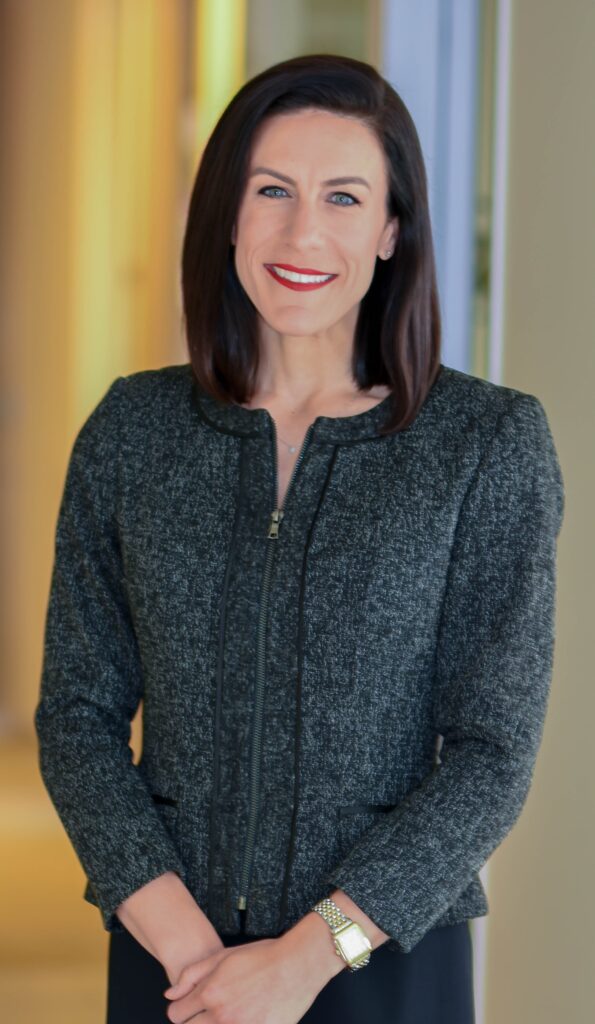Wallet Wellness: Make the Most of Your Money

Written by Diane Helentjaris

“Planning really moves the needle,” Amanda Merrill says when discussing how to build financial stability.
Merrill, a wealth advisor for Buckingham Strategic Wealth, is a certified financial planner with a law degree from Case Western Reserve University. Though everyone’s economic situation is unique, she offers some general tips to consider.
Putting together an emergency fund is first on her list. Life has unexpected surprises ahead for everyone. However, with at least six months of income set aside, disruptions lose a bit of their sting. Merrill notes, “An emergency fund assures a person can avoid portfolio liquidation at depressed rates. Volatility is upsetting. It’s always prudent to prevent [unnecessary] selling when investments are down.” Having money tucked away and ready for the unexpected moments in life can prevent one from accruing avoidable debt and neglecting other needs.
Additionally, Merrill encourages people to take the time to know where their money is and how it has been allocated. This allows one to adjust and customize their holdings. Being cognizant of interest rates for savings accounts and comparing them to other possible investments helps investors make strong decisions.
The best mix of stocks, bonds, and alternative investments varies with a person’s appetite for risk, their stage of life, and even their anticipated longevity. Life expectancy is projected to continue rising — according to a 2020 report from the U.S. Census Bureau, the average life expectancy for Americans will grow by six years and rise to an average of over 85 by 2060. Merrill confirms that increased longevity and family history of longevity are important considerations in financial planning for retirement.
On average, everyone can expect to experience at least one recession during their lifetime. Economic slumps can create opportunities to “capture a tax loss.” Painful and counterintuitive as it might be, selling investments at a loss may be a good idea in some cases — later, when the market improves, these losses could offset gains.
A free and straightforward task for individuals looking to build their financial stability is to access their personal credit reports from the three major credit reporting bureaus: TransUnion, Equifax, and Experian. These companies are required by law to give a free report to consumers annually which they provide on their websites. The three reports differ slightly, so checking each one is important. Doing so allows one to correct any errors and to track changes in credit worthiness.
Another potentially profitable and very simple action to take is to check for unclaimed money. Virginia’s Unclaimed Property Program returns “money, stocks, bonds, dividends, utility deposits, insurance proceeds, tangible property and more” to residents who may have moved, lost a check, or forgotten about a bank account. VaMoneySearch.com is the place to start. The federal government has additional information on finding unclaimed money at their USA.gov site. A few years ago, Merrill’s mother checked for unclaimed property belonging to her and discovered a small retirement fund from a long-ago teaching job.
An annual review of insurance coverage can also save consumers money. Supply and labor costs have increased in recent years due to inflation and old insurance levels might not be adequate. For Hunt Country residents who own historic homes and lands, the need for special skills or materials to restore damaged properties may justify increasing insurance levels.
Merrill notes that umbrella insurance — policies which provide extra insurance beyond standard home, auto, and boat insurance — is “tremendously affordable.” Umbrella insurance can kick in and provide coverage when homeowner, auto, or boat insurance has tapped out. It also may cover claims excluded by other insurance policies. Individuals who serve on boards, own horses, employ staff, or have a high public profile might consider buying umbrella insurance, Merrill advises.
Finally, Merrill recommends people have an estate plan (at minimum, a will) and review it for completeness. This may include arranging appropriate guardians for children who are minors and other dependents. The Commonwealth of Virginia has laws covering those who die without a will. Property in that case is dispersed among relatives using a formula set by the state. For instance, in an example of special interest to equine owners, horses whose owner has died could end up the property of a relative who may not have the resources or interest to properly care for them. Merrill notes that a trust may include horses, with specific language to assure their wellbeing.
When it comes to financial planning, Merrill makes it clear that simple actions and attention can reap rewards in the future. ML
Buckingham Strategic Wealth
112 West Washington Street, Suite 204
Middleburg, Virginia 20117
Telephone: (540) 931-9051
BuckinghamStrategicWealth.com
This article first appeared in the January 2023 issue.








